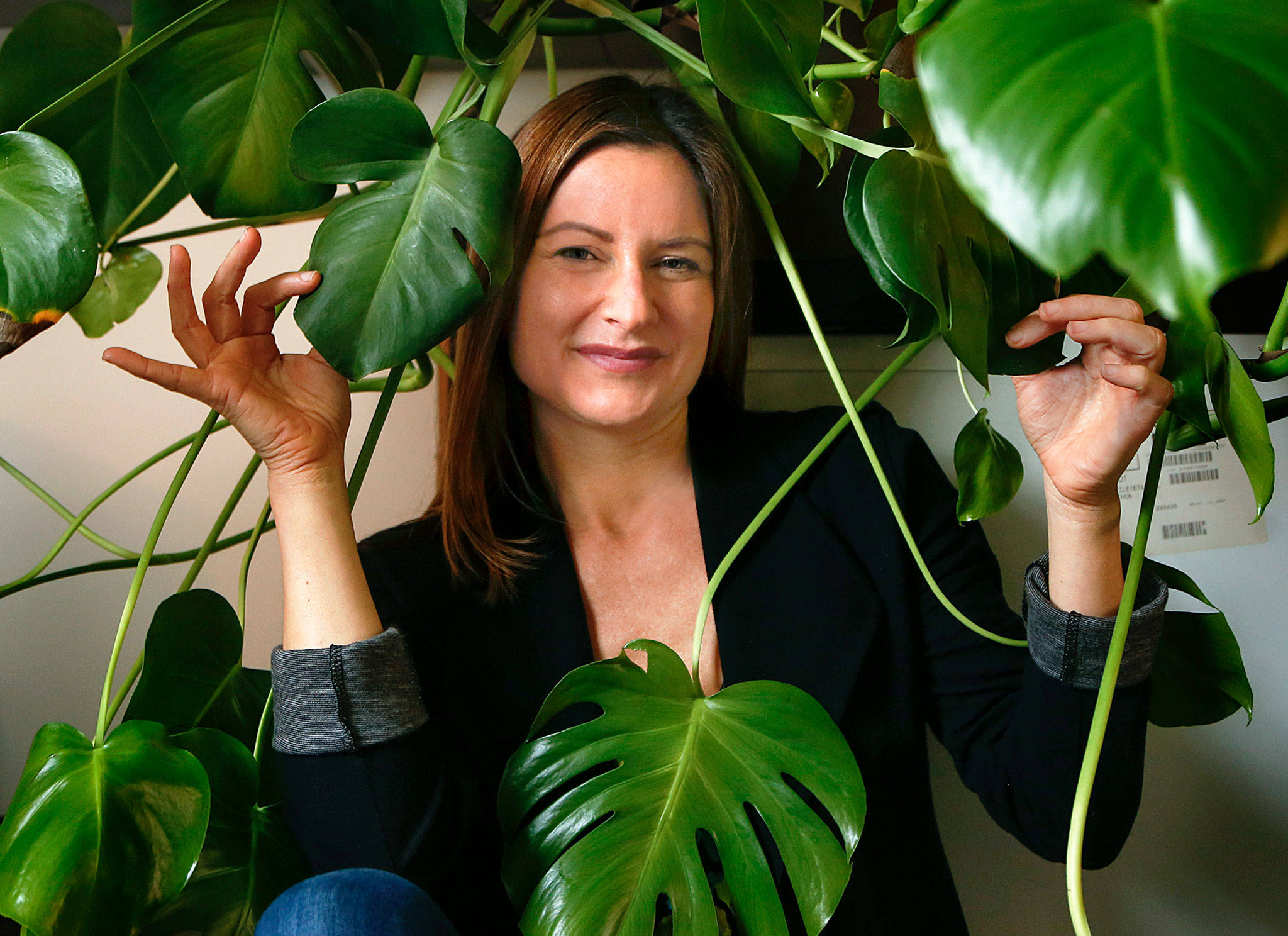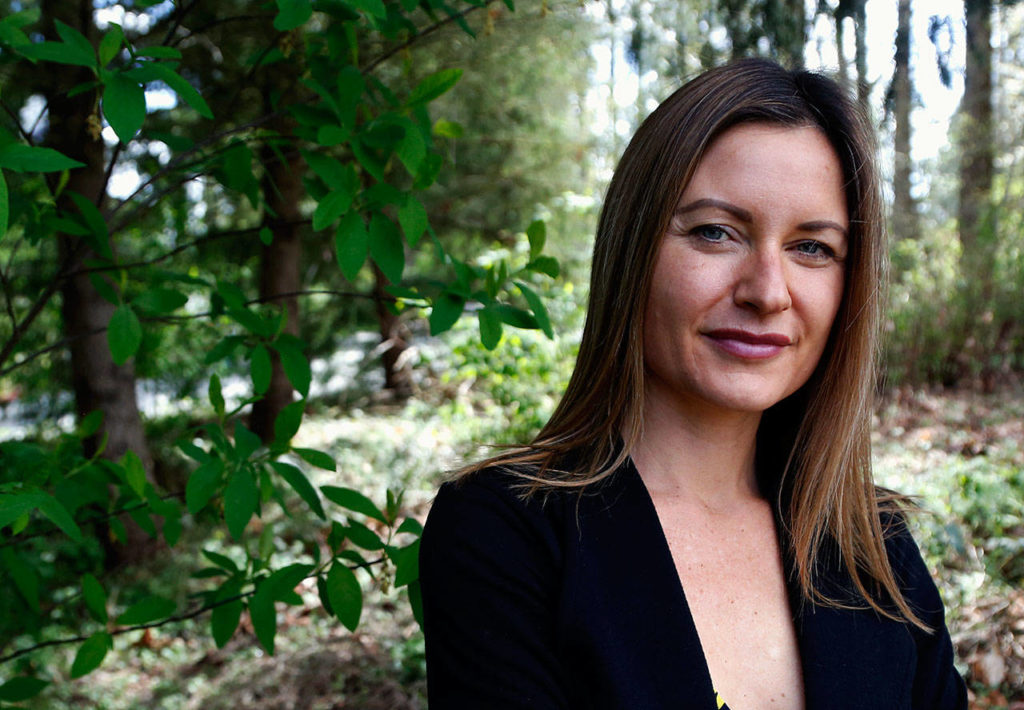College students worry. They worry about grades, education costs and future careers. A UW Bothell faculty member knows they also worry — a lot — about planet Earth.
During winter quarter, which ended in March, Jennifer Atkinson taught a two-credit seminar called Environmental Grief & Climate Anxiety.
As students learn more about climate change and mass extinctions, Atkinson has noticed emotions rising. Students feel hopeless or angry. One student, a military veteran, expressed fears for his two children.
“They’re losing sleep,” said Atkinson, a lecturer in UW Bothell’s School of Interdisciplinary Arts & Sciences.
With Earth Day coming Sunday, she talked this week about who signed up for the seminar, what they’re anxious about and why someone with a Ph.D. in English language and literature would lead a course in environmental grief.
She’s not a scientist. Rather, she focuses on the links between literature, culture and environmental studies.
“Too often, we’re training students to understand scientific principles without asking them to consider what types of value assumptions and beliefs are at the root of the problems,” she said. “That sense that humans are somehow fundamentally apart from and superior to the rest of the natural world, where do those beliefs come from?”
Literature and the arts help explore those questions, said Atkinson, 41, who has a doctoral degree in English language and literature from the University of Chicago. “Storytelling is the oldest way to make sense of the world,” she said.
During the once-a-week seminar, students looked at emotional ramifications for themselves, and also for scientists, activists and “frontline communities” — people whose lives are directly affected by extreme climate events and other environmental stresses.
Asked what students seem most worried about, Atkinson said it’s not melting ice caps and rising sea levels.
“I’ve noticed with this generation, the loss of wildlife — mass extinction and biodiversity — is in some ways more profound and heartbreaking,” Atkinson said. “There really is no adaptive strategy. It’s kind of a crime against creation.”
She believes there’s a profound sense of loneliness in the loss of creatures that have done nothing to bring about their doom.
Western wildfires fuel other grave worries. Atkinson has had first-generation college students whose families work in agriculture in Eastern Washington, and others whose parents or siblings are firefighters. “The skies are darkened and the air is so bad — that really brings it home to people,” she said. “The excitement and anticipation of summer has been darkened in a way.”
Twenty-four students took the class, which she plans to offer again next year. The majority weren’t environmental science majors, which surprised Atkinson.
Did the class offer hope?
“The flip side of grief is love,” Atkinson said. As part of the course, students took an hour each week, with a notebook and pen, in a quiet place outside, perhaps a place they loved. They were asked to observe and be fully present in those places, and to write what they saw and felt.
“Study after study confirms that time spent outdoors enhances our sense of well-being, and can be a tremendous boost to mental health,” Atkinson said. “Just sitting out on the steps and taking deep breaths and feeling sunlight on your face can make a significant impact.”
Time outside is also a reminder of why it’s worth seeking climate solutions. “There’s still so much to fight for,” she said.
For a final project, students in groups created “climate change survival kits,” with the aim of helping others deal with emotions tied to environmental issues. Projects included a children’s book, lists of resources and daily practices.
Atkinson shared the titles of two books “my students absolutely love.” One is “Pilgrim at Tinker Creek,” Annie Dillard’s 1974 Pulitzer Prize-winning reflection on living deliberately and reconnecting with life’s wonders. The other is “Red Alert! Saving the Planet with Indigenous Knowledge,” by Daniel Wildcat, a professor at Haskell Indian Nations University in Kansas.
Current environmental news is sure to make many of us depressed. On Thursday, it was a notice from the Bureau of Land Management that the Trump administration is taking a first step toward allowing oil and natural gas drilling in Alaska’s Arctic National Wildlife Refuge — just one example of what’s causing our worries.
Atkinson sees decades of environmental efforts being unraveled. Yet she sees the possibility that as government fails to stand up for the natural world, grassroots efforts at the local level will continue the fight.
“Now it’s on us,” she said.
Julie Muhlstein: 425-339-3460; jmuhlstein@heraldnet.com.
Earth Day event at county campus
The public is welcome at an Earth Day celebration 11:30 a.m.-1:30 p.m. Friday at the Snohomish County Campus plaza, 3000 Rockefeller Ave., Everett. County Executive Dave Somers is scheduled to talk at noon. The nonprofit InterConnection will offer free electronics recycling. Businesses may learn about an EnviroStars regional recognition program. There will be food trucks, a vactor truck to demonstrate how pollutants are removed from roads, and a Chevrolet Bolt electric car on display. People may sign up for volunteer events scheduled for Friday and Saturday. In case of rain, event will be in the Robert J. Drewel Building on the county campus.
Talk to us
> Give us your news tips.
> Send us a letter to the editor.
> More Herald contact information.


























